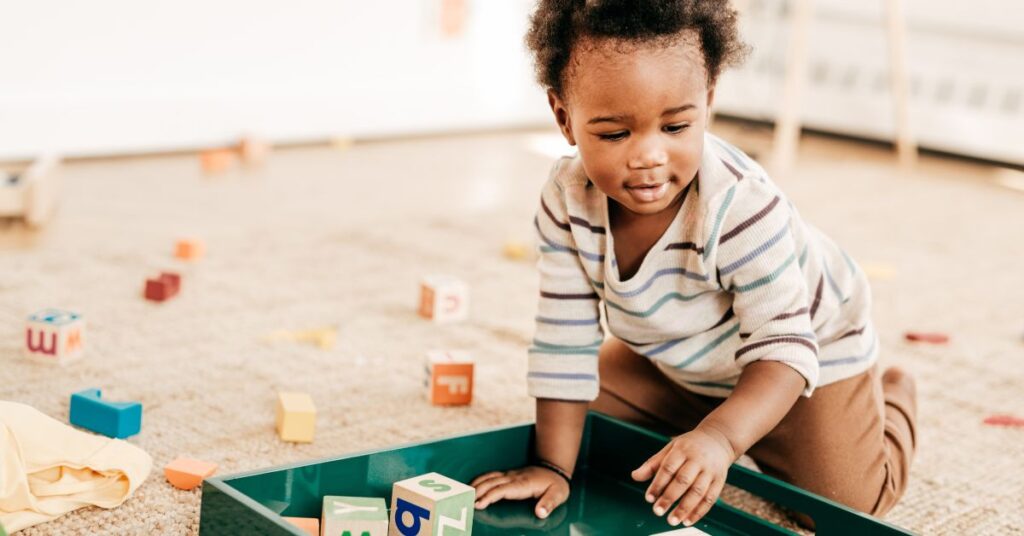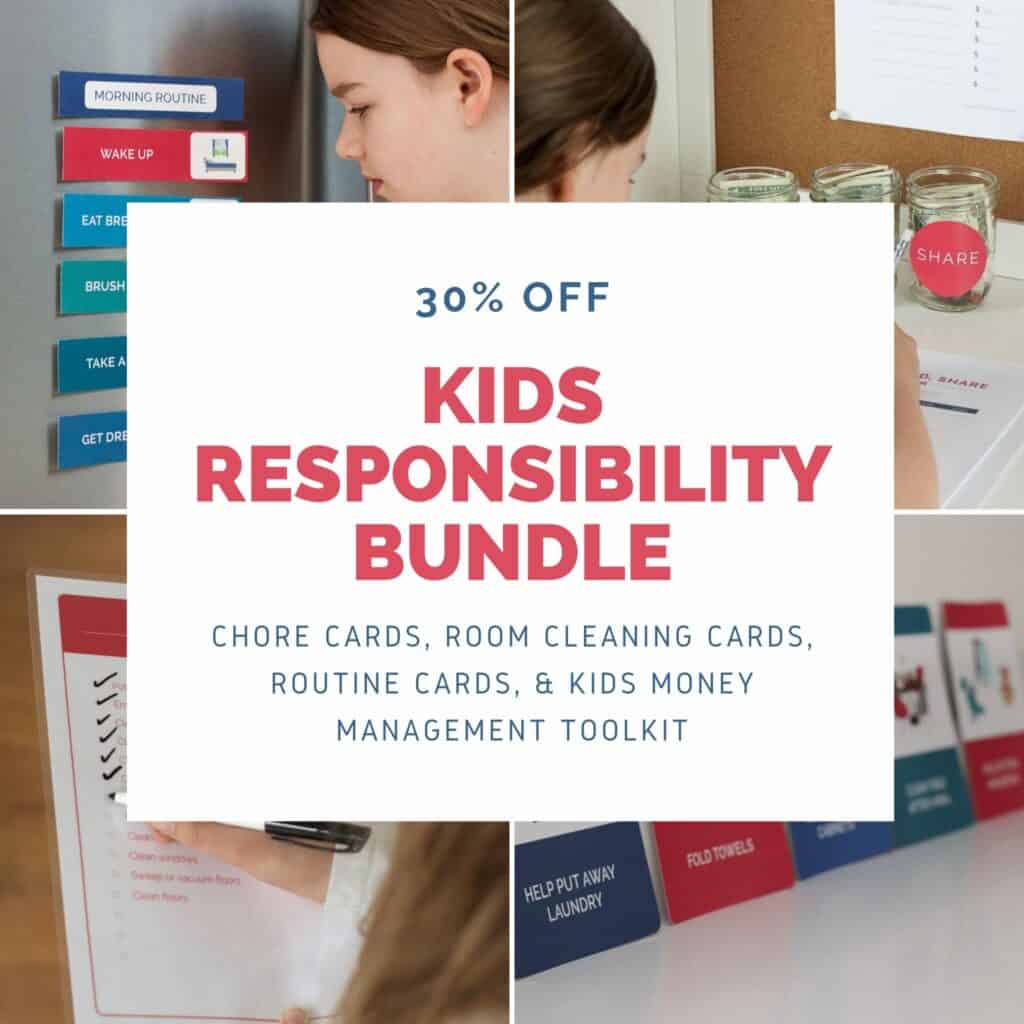What is Executive Functioning in Children and Why Is it Important for Parents to Understand?
Executive functioning in children encompasses a number of skills our kids need to learn as they mature. While these skills are mainly developmental, parents can support their children’s growth in a number of ways.

Sitting still and listening, getting homework submitted on time, paying attention, and maintaining an organized room.
These and more are executive functioning skills children need to be successful academically and in life.
And while parents and teachers can and should support children in developing these skills, it’s essential they keep expectations in check regarding children’s developmental capabilities.
For example, we would not expect a two-year-old to keep a completely neat and tidy room. And in some cases, due to developmental differences, we can’t expect teens to have completely mastered this skill either.
The following will help you better understand executive functioning in children and how best to support your kids’ growth in these skills.
What is executive functioning in kids?
Executive functioning refers to mental processes responsible for managing, planning, and organizing behavior.
In kids, a better grasp of these skills leads to greater academic and social success. However, these skills are mainly controlled by the prefrontal cortex of the brain and will continue to develop throughout early childhood and adolescence. Few children or even teenagers have mastered all of these skills before they leave home. In fact, a number of these skills aren’t completely developed until age 30.
The following are 10 key executive functioning skills that kids need to develop over the course of their childhood, adolescence, and early adulthood:
- Metacognition: the ability to be aware of one’s own thinking processes, including strengths and weaknesses.
- Self-control: The ability to stop a behavior or thought that is no longer useful or appropriate.
- Working memory: The ability to hold information in your mind for short periods of time, remember instructions, and use them to complete a task.
- Emotional control: The ability to self-regulate and manage emotions, particularly in stressful situations.
- Task initiation: The ability to start a task on one’s own.
- Planning and goal setting: The ability to break down a task into smaller steps, create a plan, and follow through on that plan.
- Organization: The ability to create and maintain a process of arranging and structuring resources, information, or activities for efficient and effective use.
- Time management: The ability to estimate how much time is needed for a task and how to use that time effectively.
- Cognitive flexibility: The ability to switch between different tasks or mental sets.
- Attention and focus: The ability to pay attention and to think about, work on, and complete tasks without distraction.
See related: 10 Important Executive Functioning Skills and How You Can Support Your Child’s Growth
What are examples of executive functioning in children?
Executive functioning in children is demonstrated in school, social situations, and at home. Here are a few examples of children growing in their development of these skills:
- Your five-year-old is increasingly able to calm their emotions when they get upset and can follow multi-step directions better than they did a year ago.
- Your six-year-old has shown progress in raising their hand before speaking in class instead of blurting out whatever is on their mind.
- Your eight-year-old no longer feels overwhelmed when starting a simple project on their own.
- Your eleven-year-old is showing signs of greater organization in their bedroom.
- Your fifteen-year-old is doing a better job of reviewing and editing homework before they turn it in.
How do I know if my child has an executive functioning disorder?
All children are in the process of developing executive functioning skills but just like any skill, kids develop at different rates. Sometimes a lag in executive functioning skills is simply a lag in developmental growth but other times it’s a disorder that is often connected to ADHD.
If you feel your child is struggling to reach an executive functioning skill milestone (this guide to executive functioning skills by age can help), consider consulting a healthcare provider who can access your child’s cognitive and executive functioning abilities. This assessment can help you better understand your child’s strengths and weaknesses, whether intervention is necessary, and how to support and work with your child.
How can I improve my child’s executive functioning?
Parents should always remember that executive functioning develops gradually in kids. Trying to push kids to master an executive functioning skill before they’re ready will only lead to frustration, a sense of failure, poor self-image, and a fixed mindset. It’s also never appropriate or helpful to condemn a child for failing to perform an executive functioning skill.
Instead, it’s valuable for parents to be aware of what they can expect developmentally from their children. We can’t expect a three-year-old to hold a seven-step process in their working memory for getting ready in the morning. It’s also unreasonable to expect a ten-year-old to be completely organized on their own or to independently remember to take regular showers.
That said, here are a few ways parents can lovingly support their children’s development of executive functioning skills:
- Nutrition and sleep: Making sure your child is eating a healthy diet and getting adequate sleep each night is the first step in ensuring they’re able to perform at their peak ability.
- Break tasks into smaller steps: It’s not unusual for young children to feel overwhelmed by a task they’ve been presented with. You can reduce this overwhelm by coaching your child to break tasks down into smaller, easier-to-manage steps.
- Follow routines: Children will be more successful at executive functioning tasks if they’re in a structured and predictable environment. Developing and following a routine will help give your child a sense of predictability and clues about what comes next in their day.
- Use visual aids: As children continue to develop their working memory, visual reminders will be helpful. Routine cards, chore cards or charts, and lists can help kids visualize what they need to do next.
- Self-reflection and problem-solving: If you encounter a situation where your child struggled with executive functioning – for example, they accidentally left their coat at school or failed to complete a homework assignment on time – resist the urge to condemn and instead encourage your child to reflect on what went wrong and how they can do better in the future.
Help your child get started with chores, follow a routine and learn about money with the Kids Responsibility Bundle. The bundle includes 101+ Chore Cards for Kids, Room Cleaning Cards for Kids, 70+ Routine Cards for Kids, and the Kids Money Management and Allowance Toolkit. Click here or the image below to learn more.
Awareness is key
One of the most helpful things parents can do for their children (and their own sanity!) is to educate themselves about child development. The more aware parents are of their kids’ capabilities at certain ages, the easier it will be to not view a lack of executive functioning skills as a sign of irresponsibility, laziness, or failure.
Once we understand that forgetfulness, disorganization, lack of time management, and impulsivity are all connected to the development of skills, the more we’ll feel motivated to support and coach our kids’ development rather than condemn or punish them.
See related:
What’s the Average Attention Span by Age for Children?
16 Working Memory Games (That Are Fun for Kids!)
10 Games That Teach Self-Control
How to Establish a Calm Morning Routine for Kids That Actually Works
The Best Bedtime Routine to Get Your Kids to Fall Asleep and Stay Asleep
How to Get Kids to Do Their Homework and Raise Self-Starters
Why These 3 Classic Punishments for Teenagers Are Ineffective and What to Do Instead
7 Important House Rules for Teenagers (and How to Make Sure They’re Followed)
What to do next…
1. Subscribe to Self-Sufficient Kids’ email list.
Like what you read here and want to learn more? Every Thursday I’ll send you one parenting tip about raising self-sufficient kids and creating the peaceful relationship you yearn to have with your child. Click here to sign up.
2. Take one of my quizzes!
Find out if you’re raising a self-sufficient kid (click here) or if you’re doing too much for your kids (click here). At the end of each quiz, you’ll be asked to provide your email address to see the results.
3. Get your kids started on chores.
Learn how to get your child started on chores (& keep them motivated + avoid power struggles) by enrolling in my Get Your Kids Successfully Started on Chores course. Click here to learn more and sign up.

About Kerry Flatley
Hi! I’m Kerry, the mother of two girls and a certified parent educator. I believe it is possible for parents to have a supportive, loving, and warm relationship with their kids while raising them to be independent and ultimately self-sufficient. Over the years, I’ve read numerous books and articles that support this belief and I’ve put these ideas into practice with my own kids. Read more about me and Self-Sufficient Kids here.


